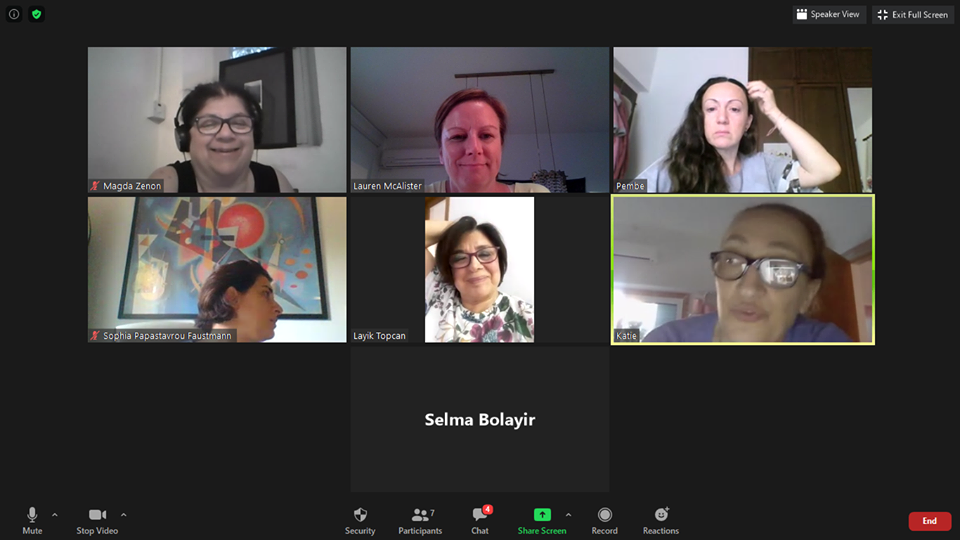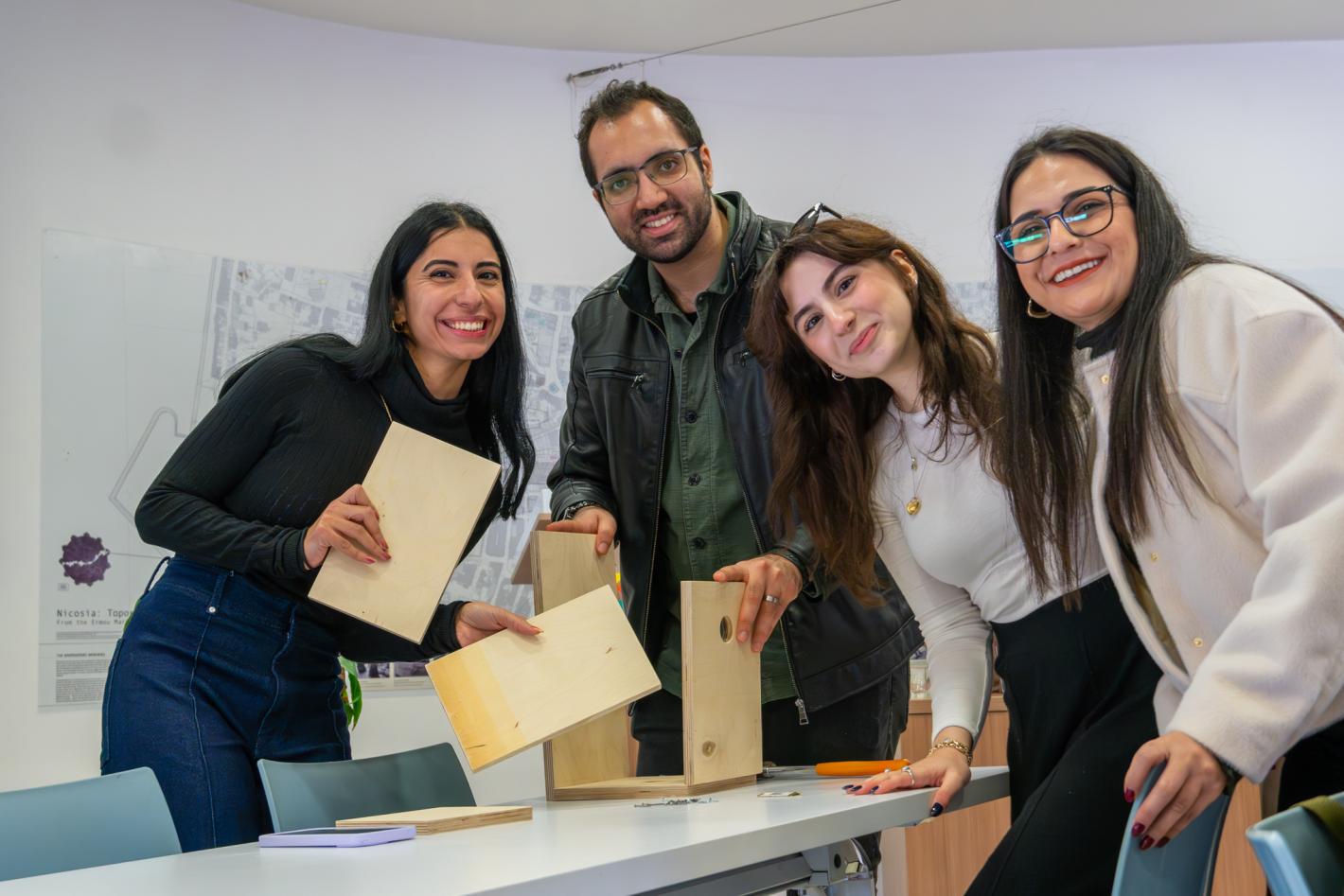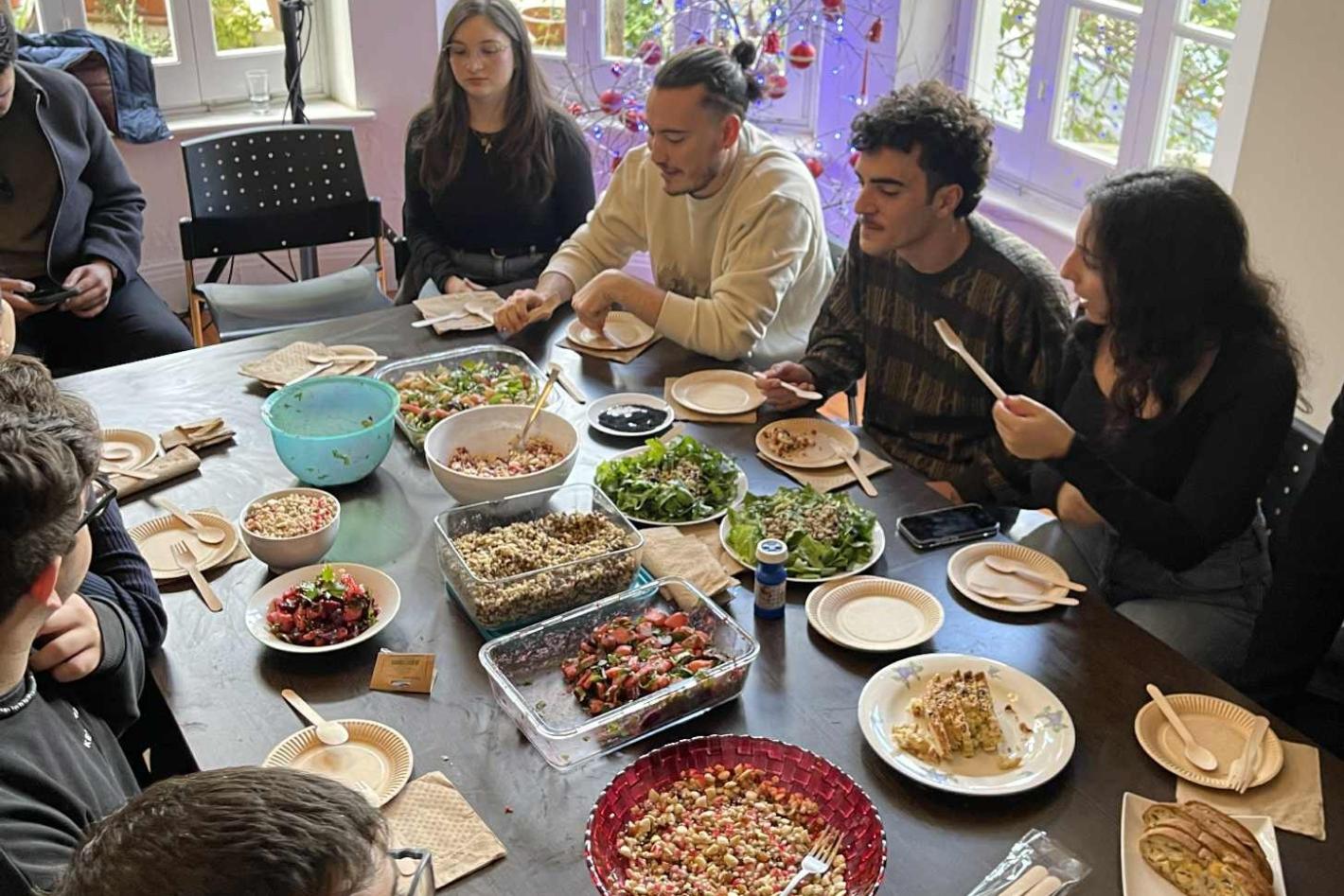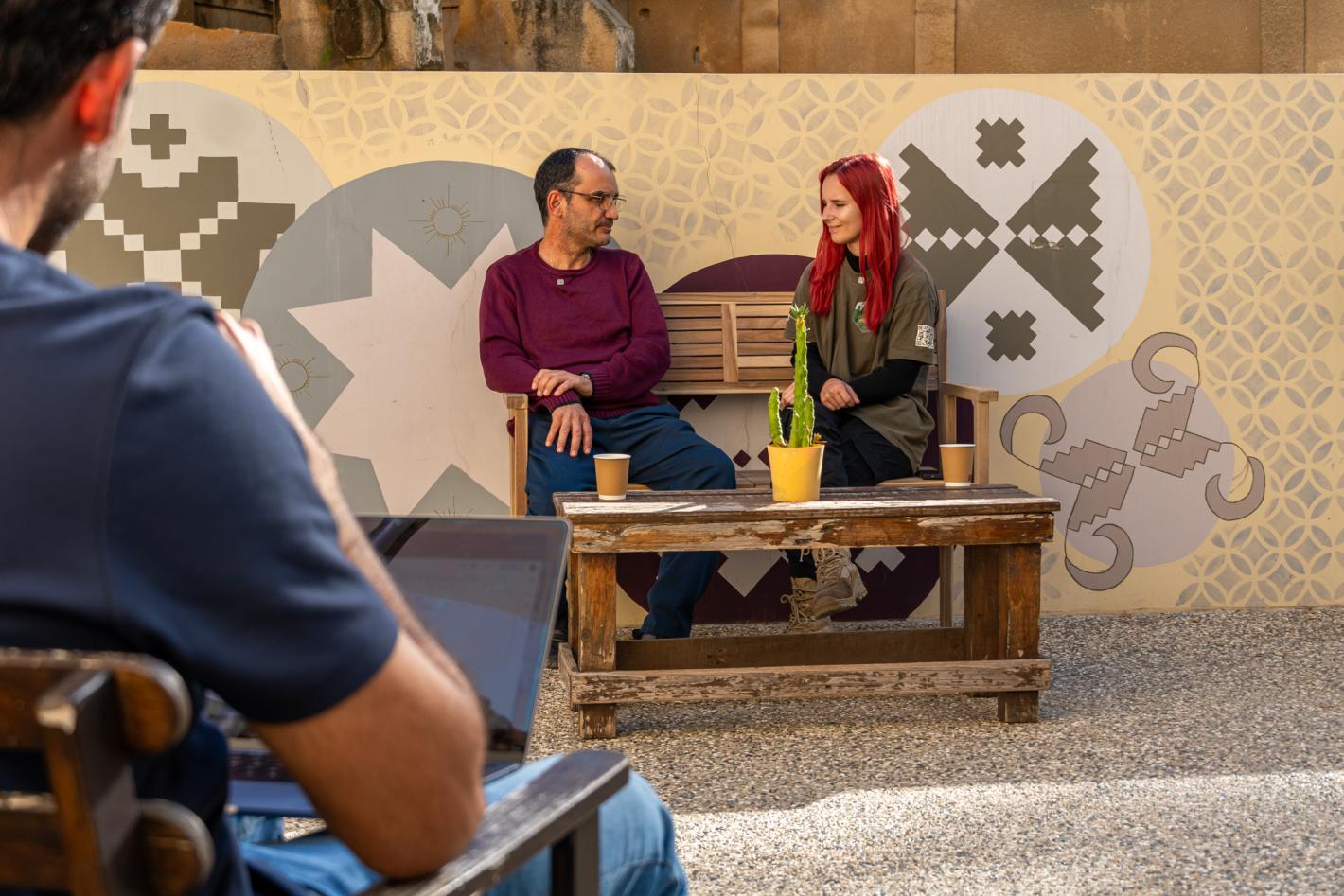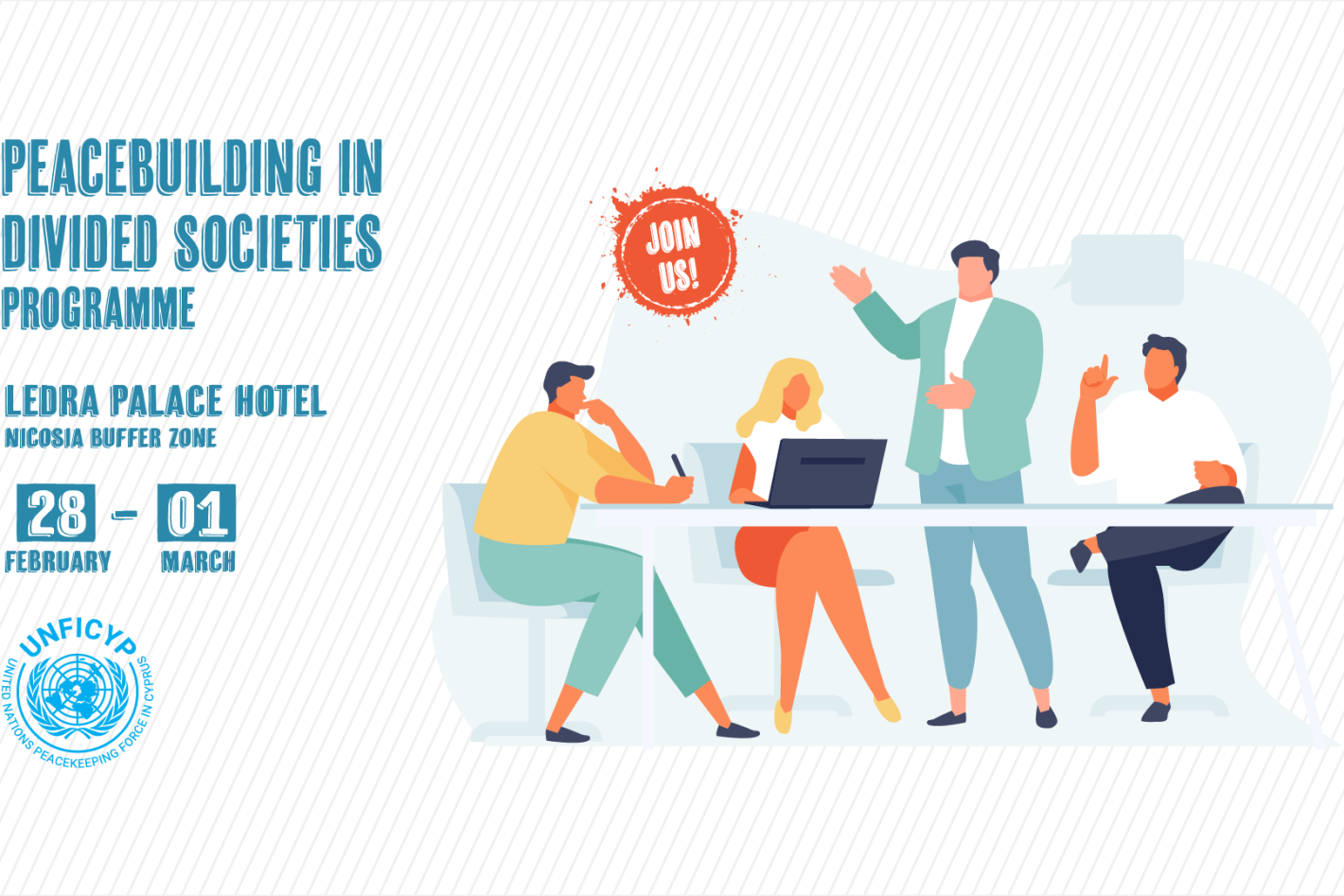On 3 June, UNFICYP’s Gender Affairs Officer, Lauren McAlister met virtually with members of Hands Across the Divide, Cyprus’ longest standing bi-communal women’s group and the first group to put women, peace and security on the agenda in Cyprus. The group discussed the way forward for the women, peace and security agenda, and how the Covid-19 pandemic has impacted gender equality.
Established in 2001, Hands Across the Divide is a group of like-minded Turkish Cypriot and Greek Cypriot women intent on bringing a women’s perspective on change in Cyprus to shape the future of the island, and to increase contact between women on both sides of the divide. They started meeting before the opening of the first crossing points on the island in 2003, with meetings often being held in the bi-communal village of Pyla, located inside the buffer zone.
Their early initiatives were a precursor of efforts taken since to ensure women’s rightful role in the overall peace process and to de-mystify the basic goals of the women, peace and security agenda. As one member highlighted, the intention of Hands Across the Divide was not necessarily to agree on a particular solution to the Cyprus question, but to stress the importance that any solution needed to reinforce gender equality.
Reflecting on the almost 20 years since the group’s inception, many of the members echoed a similar sentiment- the gains made for women’s rights and gender equality have been limited by the overarching affiliation to respective political identities, limiting the ability for women – both within the respective communities and across the divide- to come together outside of political affiliations. Furthermore, even if women have been increasingly more involved within the political sphere, HAD members pointed to a largely male dominated political space, where the system itself reflects men’s perspectives more acutely than women’s. Challenges then persist not only in bringing gender equality into the peace and political process in Cyprus, but in confronting the patriarchal structures within the respective communities in order to advance real change.
They stressed that opportunities for transformation lie in structural change – which the women, peace and security agenda provides a blueprint for. Broadening women’s inclusion in peace and political processes is about challenging the status quo and redefining what peace means- a definition that ideally includes broader voices amongst the population.
While Hands Across the Divide spoke to the transformative potential for women to shift the discourse on peace and security, the immediate situation in light of the Covid-19 pandemic also has compounded gender inequalities, in Cyprus and beyond.
HAD members highlighted their concerns over the dramatic increase in reported cases of domestic violence- which only represented a fraction of the pervasiveness of the issue. HAD members spoke as well to issues of economic and psychological abuse in addition to physical abuse, which is further aggravated by the pandemic and the corresponding movement restrictions that were implemented. As well, women’s responsibilities during the pandemic expanded, including the often invisible burden of care- including children, vulnerable members of the population and others that required further support during this time- labour that is disproportionately provided by women. The group also recognized the ongoing feeling of not doing enough because of being overextended in caretaking, homeschooling children and professional lives at the moment- a sentiment that they were unsure of men feeling. However, they acknowledged the opportunity that this pandemic presents for more emphasis on the contribution of unpaid care work to the functioning of the whole society.
As Cyprus emerges from the Covid-19 period, HAD member stressed the need for more support to encourage women’s SME’s outside of the formal economic sector and other areas that may not receive financial subsidies within Covid response plans. According to one member, the current threat to driving funds away from women’s organizations is not unique, but rather a frequent response in any difficult situation- women’s groups often suffer. Furthermore, the group acknowledged the need for solidarity with women across the board, including domestic workers and migrants, who are suffering disproportionately in the current situation and require specific help and assistance. And overall, the unpaid work of women’s organizations in general requires focus now and moving forward.
In close, the groups emphasized the shadow pandemic of domestic violence, but also, redefining peace in the context of women’s security- free of violence. According to them, a peace process is untenable when women’s physical security cannot be ensured. Gender based violence is an inextricable concern from the broader women, peace and security agenda, and unless women are active participants in the decisions that impact their lives, change is impossible.


